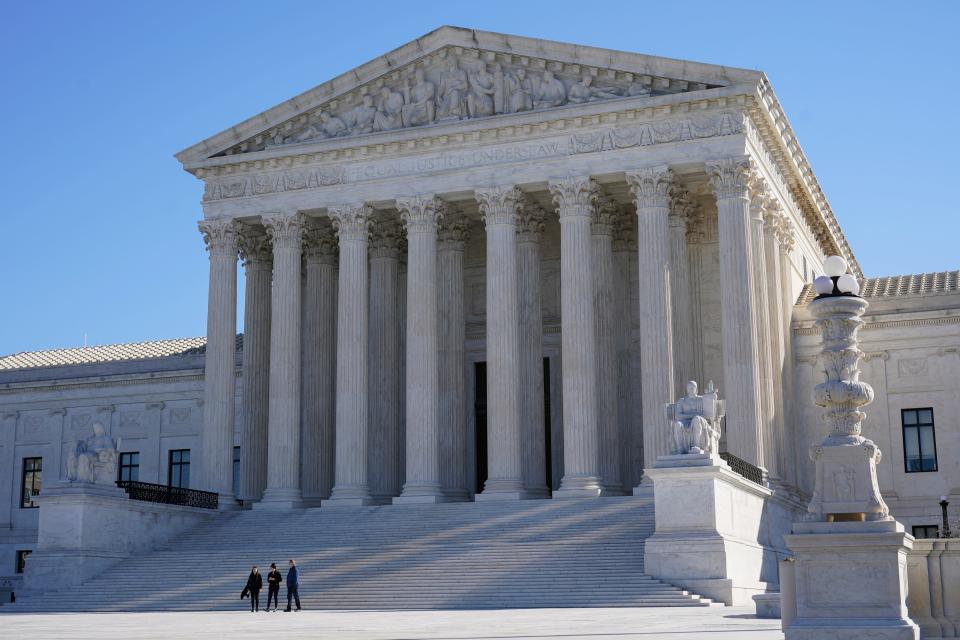Supreme Court rejects Oklahoma attempt to narrow Indian definition
The U.S. Supreme Court on Tuesday rejected Oklahoma’s attempt to narrow the definition of “Indian” in criminal cases as it sought to reclaim more jurisdiction in the wake of the McGirt case.
Without comment, justices declined to review the state’s appeals in the cases of Robert Eric Wadkins and Emmitt Sam. In both cases, the state of Oklahoma wanted the high court to rule that the men should not have been deemed Indians because they were not members of a tribe when their crimes were committed.
Instead, the Supreme Court on Tuesday let stand the rulings by the Oklahoma Court of Criminal Appeals that the men proved their Indian blood and tribal connections through means other than official tribal membership.
The state court convictions of Wadkins and Sam were among many overturned since the 2020 decision in McGirt v. Oklahoma led to the affirmation of six Indian reservations in Oklahoma. Now, most of eastern Oklahoma is Indian country, where federal law grants criminal jurisdiction to U.S. attorneys and tribal prosecutors in cases involving Native Americans.
In June, Oklahoma won a major victory when the U.S. Supreme Court declared that it could share jurisdiction in cases in Indian country in which the accused is a non-Indian and the victim is Native American. However, the state does not have jurisdiction over Native Americans accused of crimes on reservations.

Details of the crimes
Wadkins was convicted of kidnapping and raping a 22-year-old woman in 2017 in Choctaw County and was sentenced to 40 years in prison. Last year, the Oklahoma Court of Criminal Appeals overturned his conviction, ruling that the definition of Indian doesn’t require tribal enrollment and that the state had no jurisdiction since the crime involved an Indian in Indian country.
Wadkins had a Certificate of Degree of Indian Blood most of his life and used it as his primary means of identification and to receive medical benefits from the Choctaw Nation. Also, the court said Wadkins’ mother, brother and several other relatives were enrolled members of the tribe, that he attended pow-wows and “held himself out as an Indian.”
More:'Sovereignty is on the ballot': Oklahoma candidates take on tribal issues
Sam was convicted of first-degree murder in the killing of Jonathan Stephens in Tulsa in 2016 and two counts of armed robbery. He received a life sentence and two seven-year sentences.
The Oklahoma Court of Criminal Appeals reversed his conviction last year, ruling again that tribal membership was not required. Sam had Cherokee blood and had benefited for many years from services provided by the Cherokee Nation, of which his mother was a member.
Federal prosecutors have filed charges against Wadkins and Sam.
Oklahoma asked US Supreme Court to narrow definition of "Indian"
The state sought a “bright line” rule requiring tribal membership for defendants to be deemed Indian for purposes of the Major Crimes Act. It contended that federal appeals courts are split on the definition and that the Supreme Court could resolve longstanding questions.
Attorneys for Wadkins and Sam countered in their briefs that lower courts were not divided on how to define an Indian.
“Unable to show any disagreement on the test that lower courts unanimously apply, Oklahoma asks the Court to adopt a bright-line rule that the word ‘Indian’ in federal criminal statutes refers only to Native Americans who are enrolled members of federally recognized tribes,” the attorneys told justices.
“That argument, however, is no more worthy of review. Every court to have considered the question has rejected Oklahoma’s position. And for good reason.”
This article originally appeared on Oklahoman: SCOTUS rejects Oklahoma's attempt to narrow the definition of Indian

